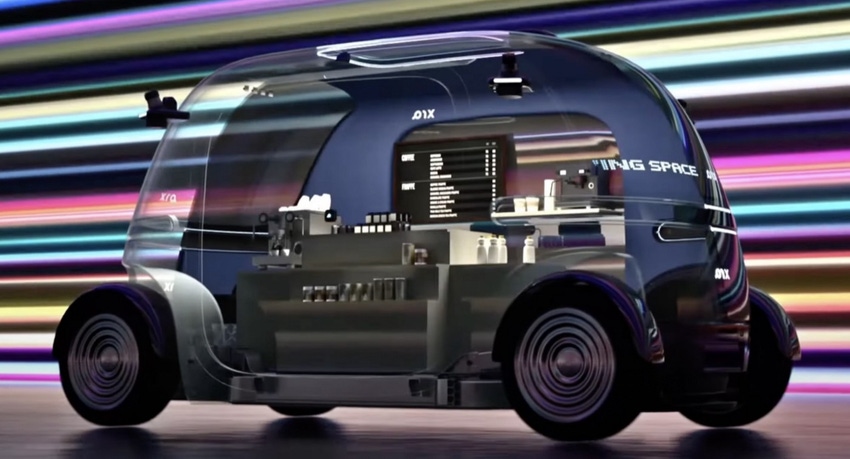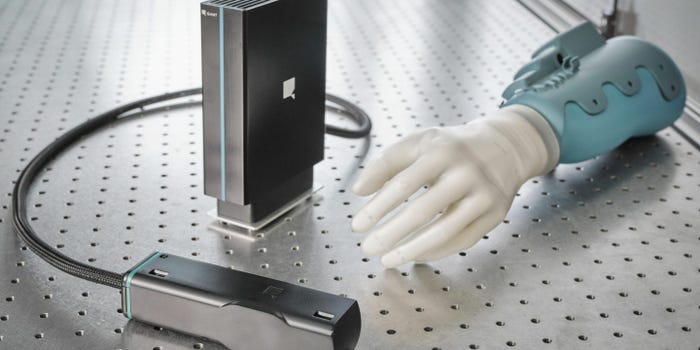Pix Moving imagines it to be a “diversified shared mobility experience” designed to accommodate up to six people
September 7, 2022

Is this dramatic self-driving Robobus the future of the daily commute? Chinese start-up Pix Moving thinks so.
The company, which is based in Guizhou province, but also has a presence in San Francisco, has high hopes for its driverless pod.
The Robobus delivers Level 4 autonomous driving, as defined by the Society of Automotive Engineers. This essentially means it can drive itself, at least in designated areas, with no input required by human occupants. The functionality is delivered by a package that includes lidar, a camera and integrated navigation, while multiple layers of redundancy are claimed to ensure safety.
But there is more to the Robobus than its driverless ability. Pix Moving imagines the transportation of the future to be a “diversified shared mobility experience,” and has designed the 12.5-foot-long pod, which can accommodate up to six people.
That means the Robobus has been created to be completely reconfigurable, so it can be whatever customers want it to be. Pix Moving has even coined a term for what it considers to be the new lifestyle it will encourage – “Moving Space.” This model is likely to attract businesses seeking to order their own bespoke creations and third parties who might create their own applications.
As the company explains on its website: “[The] daily commute is no longer a boring programmed route, but a moving space where you can enjoy a dedicated piece of life: sipping coffee on the mobile cafe, reading a beloved book on the on-demand bookstore vehicle, taking a nap on the lounge car, or watching [a] movie in the autonomous theater, even working out in the mobile gym on your way back home.”
Yes, you read that correctly – if you want to kill two birds with one stone, and do a workout while heading home, in all probability there will be a Robobus to suit your needs.
This versatility is achieved courtesy of the Robobus being based on Pix Moving’s flexible and scalable Ultra-skateboard platform, which allows different applications to be used on top. Maneuvering is made easy by the wheels’ ability to move in all directions, making tight spaces less of a challenge.
There are, obviously, some limitations. With a 21.5 kWh battery, the maximum range is likely to be in the region of 100 km a charge, which equates to 62 miles. The Robobus is no firebreather either, with a top speed of 18.6 mph. The maximum payload, at 1,124 lbs., isn’t vast either.
But as it will be used over short distances in urban environments, none of these will be dealbreakers. A full charge is possible in one and a half hours.
It is understood that Pix Moving is targeting the Japanese market for potential deployments, given the strong demand for autonomous vehicle solutions there.
About the Author(s)
You May Also Like




.png?width=700&auto=webp&quality=80&disable=upscale)
.png?width=300&auto=webp&quality=80&disable=upscale)


.png?width=300&auto=webp&quality=80&disable=upscale)